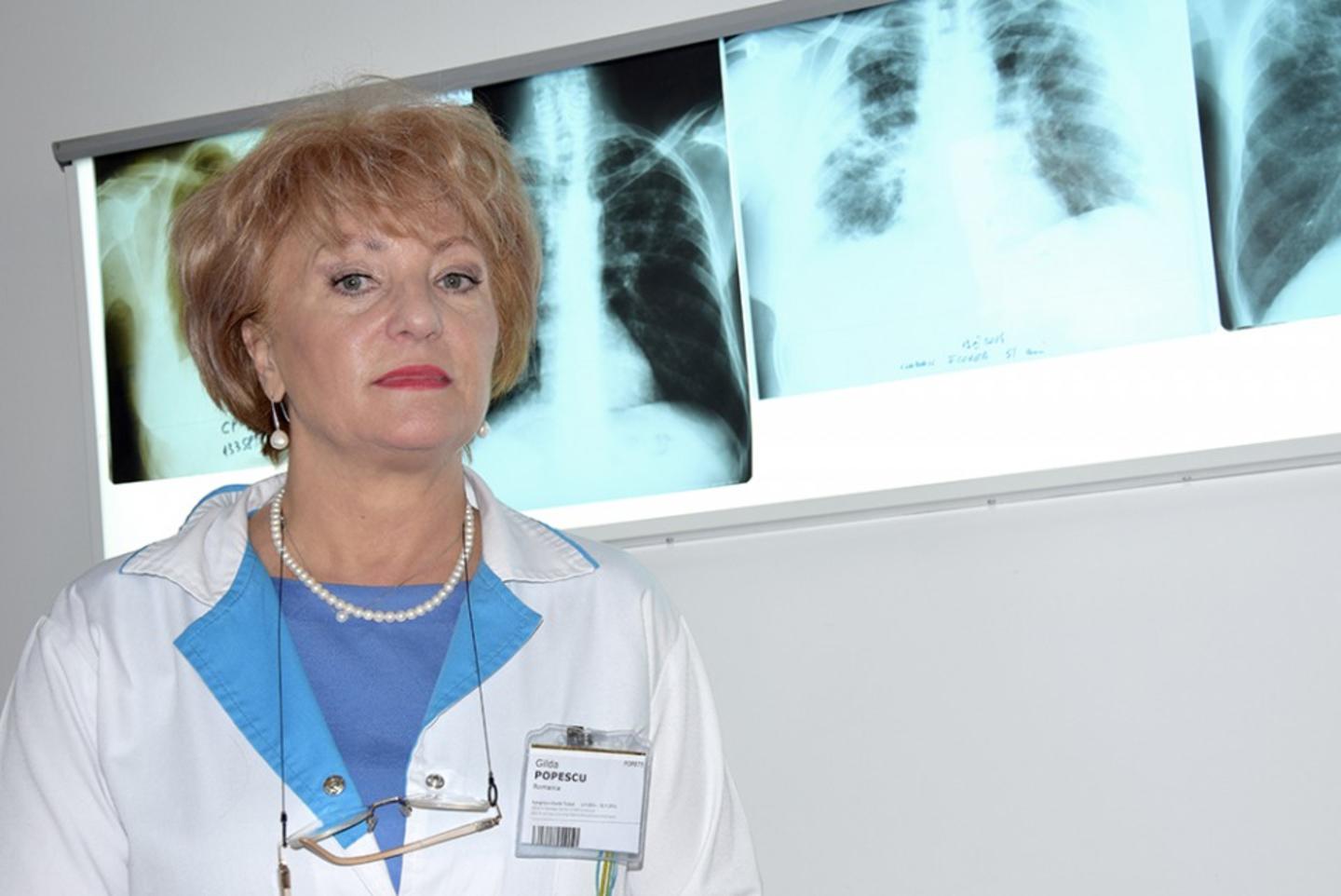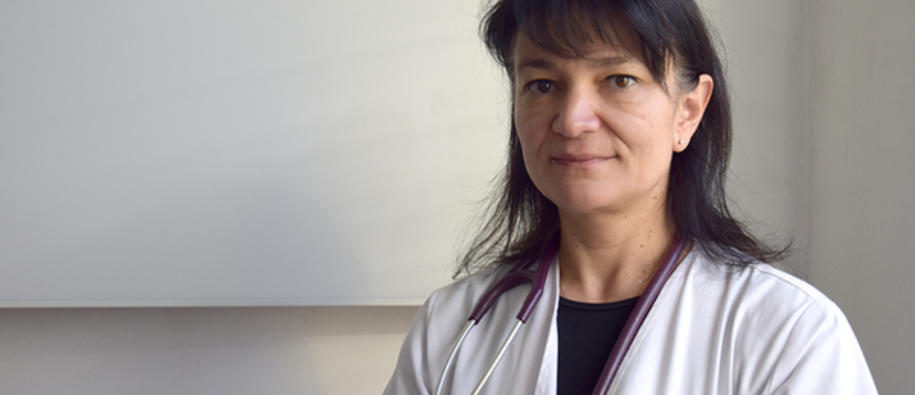Article reproduced from interviews conducted by the Romanian Angel Appeal Foundation.
These are the words of Liliana*, a 28 year old real estate agent who has been undergoing treatment for multidrug-resistant tuberculosis (MDR-TB) at the ‘Marius Nasta’ Institute of Pulmonology in Bucharest.
Tuberculosis (TB) is a complicated disease. It does not respond to standard antibiotics and can be fatal if left untreated. The disease remains a serious health problem in Romania, which according to the World Health Organisation (WHO), has the highest rates of TB in EU, with around 20 000 new TB cases, 1200 deaths from TB and 800 new MDR-TB cases in 2012. MDR-TB is particularly tricky as this TB variation does not respond to the two most powerful anti-TB drugs:
“Multidrug resistance cases continue to be the real problem, as the detection rate is 52% and, in addition, the treatment success rate is very low, 32% – the lowest in the WHO Europe region,” explains Dr. Gilda Popescu, Manager of the ‘Marius Nasta’ Institute.
Strengthening response
The persistence of TB in Romania can be explained by a combination of multiple factors, including a poor diagnosis infrastructure, an out-of-date reporting system for new cases, as well as a lack of a comprehensive, high-quality and directly observed treatment.
With over €9 million in support from Norway through the Romanian ‘Public Health Initiatives’ programme, Romanian authorities are working to address these shortcomings. Through the ‘Improving the health of the population in Romania by increasing TB control’ project, a laboratory network with modernised equipment is being developed across the country, health care professionals are receiving training in drug management, TB infection control and surveillance, and education about the disease is being provided to the general public and vulnerable groups.
Furthermore, 10 000 individuals will be screened for MDR-TB through the project. So far, over 8000 individuals have been tested. Of those, Liliana is one of the roughly 500 patients that have been diagnosed with MDR-TB. Another 2000 have been diagnosed with drug-sensitive TB.
Faster diagnosis
The project is implemented by the ‘Marius Nasta’ Institute of Pulmonology in partnership with the Romanian Angel Appeal Foundation, the Centre for Health Policies and Services, and the LHL’s International Tuberculosis Foundation from Norway. The project follows the National Tuberculosis Control Strategy 2013 – 2017, which was developed based on recommendations from the WHO and the European Centre for Disease Prevention and Control. One of the core issues addressed is the speed of the diagnosis – and here the project has already made a significant difference:
“Until a little over a year ago, we were only able to use the conventional method – microscopy, culture and drug sensitivity tests,” explains Dr. Popescu:
“The conventional method means a complete diagnostic that is obtained as follows: culture in 60 days, then another 30 days for obtaining the drug sensitivity tests. Practically, we were waiting for around 100 days until the results were communicated.”
“At present, the GeneXpert method solves this problem in two hours and the liquid phenotypic methods take another 21 days,” she continues and emphasises that the difference between a 100 and 21 day diagnosis process can make a world of difference for TB patients. This is particularly important as the results may show that the disease has become resistant to some of the drugs administered during the 100 day waiting period – a development which may require health care staff to rethink the entire therapeutic formula:
“For the patient, this means isolation, removal from the family environment, absence from work, and financial burden. These aspects can be significantly reduced and improved with the application of these rapid diagnosis methods.”
Ensuring treatment
A complete treatment of MDR-TB is very lengthy. Patients can expect a two year process, including over three months in a hospital bed. One of the challenges the project team faces is that patients are often tempted to stop the treatment simply because of a lack of understanding of the disease. Cristina Popa, a pulmonologist at Marius Nasta is one of the hard working staff members determined to help the patients complete the entire treatment:
“If you don’t know what tuberculosis is, you most certainly will not give very much importance to the drug dose that you have to take that day. They tell themselves: It’s fine, now I feel better anyway, what’s the point in taking any more pills today?”
By stopping the treatment, patients not only endanger their own health, but also the health of their family, friends and co-workers. The staff at Marius Nasta therefore places a large emphasis on informing the patients about the nature of the disease and the treatment:
“We are a team here, and we try to explain things to the patients. Besides me, there is the nurse on duty on the day in question, and the psychologist,” she says.
“The fact that we give the same information in several ways is the most important of all. We give the patients a clear idea about the disease, and this idea sticks with them.”
Mind-set matters
Popa finds that mentality plays a large role when it comes to TB recovery, as the treatment can be both mentally and physically challenging:
“I am aware of my human limits and, to be honest, for me it would be very hard to take this kind of treatment,” she notes.
Despite the difficulties, Liliana is one of the patients confronting her illness with a strong mind-set, determined to get better:
“I have a degree in psychology and I told myself I had to be able to be in control of this,” she explains, “the disease does not discourage me – it makes me stronger.”
*Not her real name.
Read the full interview with Liliana
Read the full interview with Cristina Popa
Read the full interview with Dr. Gilda Popescu
More about the Romanian ‘Public Health Initiatives’ programme

